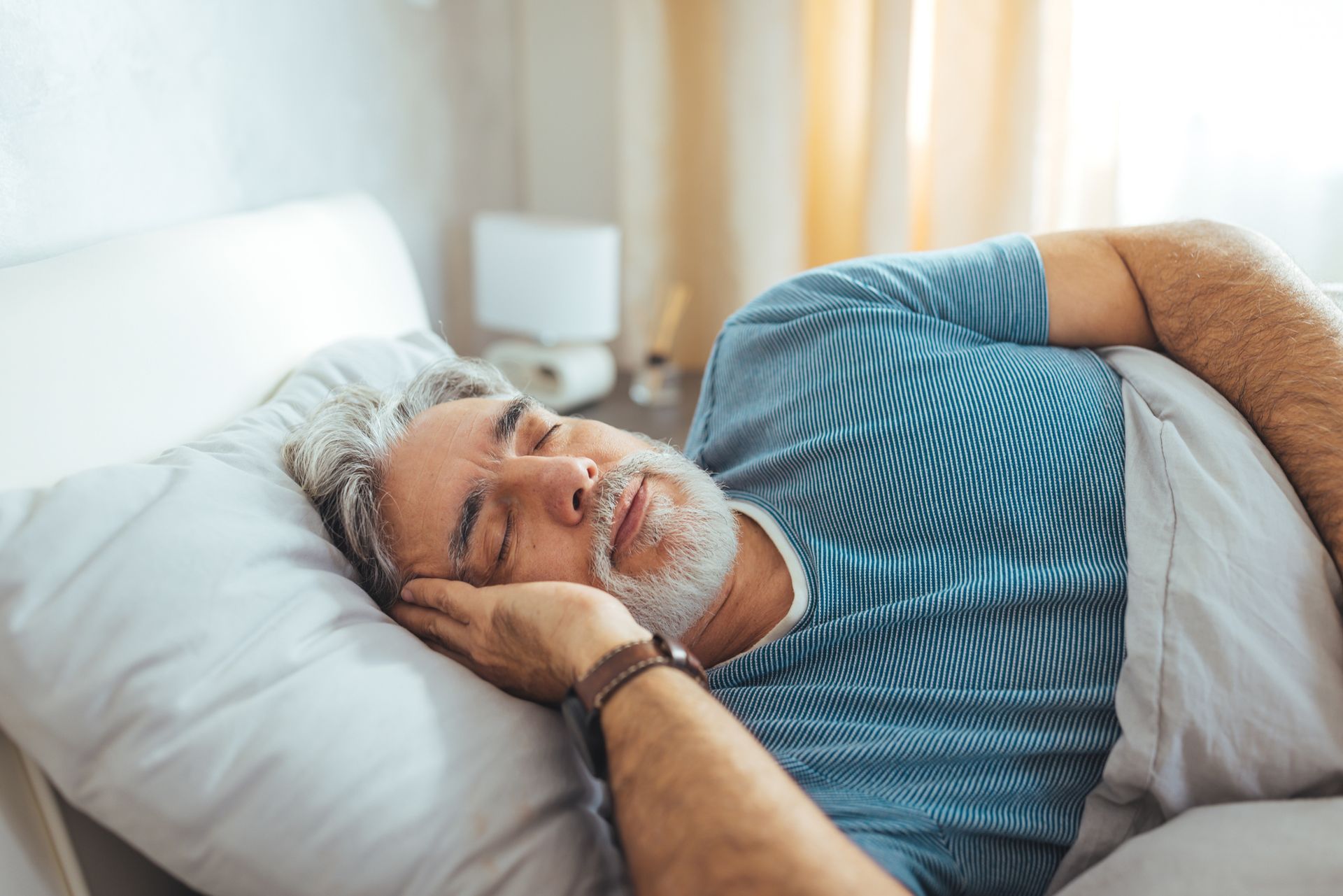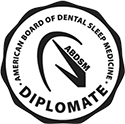Sleep apnea occurs when you repeatedly stop and start breathing throughout the night. The continuous loss of oxygen places added stress on the brain and the body and can have a variety of immediate effects, such as chronic fatigue, mood changes, high blood pressure, headaches, decreased libido, and weight gain. The continuous loop of symptoms creates a vicious cycle that can have long-term health consequences. About 70% of patients with obstructive sleep apnea are also obese. Sleep apnea can cause weight gain—and weight gain can increase the severity of sleep apnea.

The Sleep Apnea-Weight Connection
A good night’s rest allows your body to properly regulate hormones that control your appetite and how full or hungry you feel. When this process is interrupted, you’ll feel more hungry than if you were well-rested. When you’re not getting the sleep you need, the last thing on your mind is exercise. Exercise can increase energy and help you maintain a healthy weight. When you’re sedentary, your metabolism tends to slow down, which can also lead to weight gain. Even a few days of untreated sleep apnea have been linked to an increase in blood pressure, fat levels, cortisol, and blood sugar, which adds fuel to the fire, creating a perfect storm for weight gain.
Weight Gain & Sleep Apnea Severity
As you gain weight, the severity of sleep apnea is also affected. Excess tissue around the upper airway can cause the airway to narrow, leading to sleep apnea or worsening the severity of the disorder. Excess fat around the abdominal wall places additional pressure on the lungs, reducing lung capacity. This increases the probability that the upper airway will collapse during sleep–causing a sleep apnea event. A 10% increase in BMI can increase the severity of sleep apnea by up to six times, increasing the likelihood of developing moderate to severe sleep apnea. Alternately, a 10% decrease in BMI has been linked to a reduction in sleep apnea events.
Sleep Apnea Treatment
CPAP machines are traditionally used to treat sleep apnea, however compliance may be a factor, which is why medical doctors allow dentists to make oral appliances to treat sleep apnea. A customized oral appliance works by gently shifting your jaw forward to prevent your airway from collapsing, thereby reducing the likelihood of a sleep apnea event. In addition to an oral appliance, Dr. Katz will recommend any necessary lifestyle modifications, such as maintaining a healthy weight, and how to incorporate them into your daily life.
Frequently Asked Questions
How Can I Naturally Treat Sleep Apnea?
There are several lifestyle modifications that can improve your sleep apnea symptoms. However, we recommend them in conjunction with trusted methods. Natural sleep apnea remedies include:
- Maintain a healthy weight.
- Regular exercise
- Avoid alcohol, smoking, and sedatives.
- Positional therapy
- Humidifier
We understand that no two patients are the same. If you’re diagnosed with sleep apnea, we’ll create a customized treatment plan including the use of an oral appliance and suggest lifestyle modifications that will benefit you the most so we can optimize your results.
Is Sleep Apnea Life-Threatening?
Untreated sleep apnea can lead to serious health consequences, such as heart disease, stroke, high blood pressure, and diabetes. That’s why it’s crucial to seek treatment immediately after getting diagnosed with sleep apnea. Dr. Katz offers a well-rounded treatment approach to address your sleep apnea symptoms. If you suffer from sleep apnea, schedule a consultation with Dr. Katz by contacting our Greensboro office at (336) 286-5800. During the consultation, Dr. Katz will examine your head and neck function, the roof of your mouth, throat, tongue, neck, posture, body mass, and your nasal septum to look for any areas that may cause airway obstruction.
Are sleep apnea and snoring the same thing?
Most people who have sleep apnea snore, but not all people who snore have sleep apnea. Loud and frequent snoring is one of the most common and noticeable signs of sleep apnea, especially with obesity. If you snore, we highly recommend you undergo a sleep study to determine if, in fact, you have sleep apnea. Once you’re diagnosed with sleep apnea, we can begin treatment immediately. Whether you have sleep apnea or simply snore, we’ll assist you with treatment so you and your partner can start enjoying restful nights.
I Think I Suffer From Sleep Apnea. What Do I Do?
If you think you’re suffering from sleep apnea, the first step is taking a sleep test for a proper diagnosis. A sleep study, or test, can be conducted in a lab under the supervision of a physician or in the comfort of your own home. Taking a sleep study is necessary to receive a clear and accurate diagnosis for your condition, allowing our team to provide you with the best possible care. Once you have the diagnosis, Dr. Katz can help determine the most effective solution for treating your sleep apnea.
Struggling with sleep apnea and weight issues? Get expert guidance in Greensboro, NC. Call Mark J. Katz, DDS, PA, at (336) 286-5800 today!














